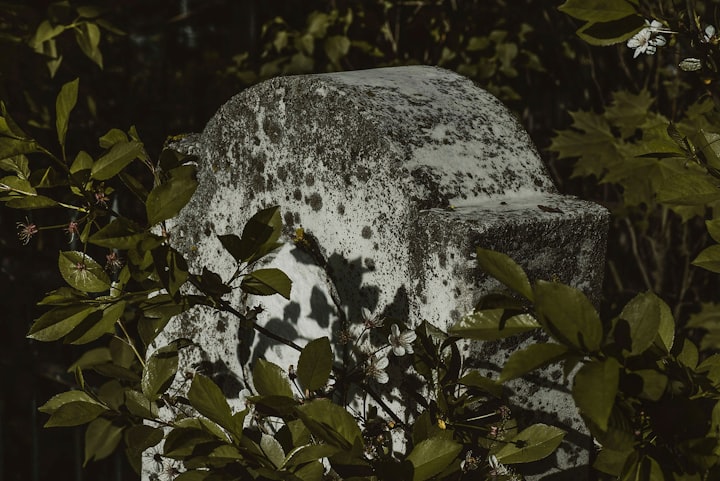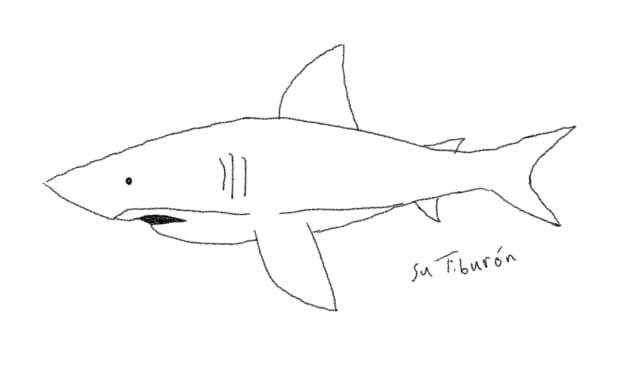The Finding Day
A story of simple pleasures, friendships rekindled, and Jewish wisdom.

My grandmother’s vegetable garden had been around longer than I, longer than even my mother, had been alive. She had planted the first cabbages even as humanity embroiled itself in yet another World War. She herself had barely escaped with her life, and at least some of her family, as an evil seed of hate, planted by angry men and fertilized by hunger, began to sprout in Germany. She was a little girl then, but she could remember the whirlwind of activity in the family home as her mama and papa bundled her up and spirited her away in the dark of night. Other than that, she said remembered sitting for a long time in a gently swaying darkness, and being told to stay very quiet for what felt like a very, very long time. And when they made their home in America, she and her mama put their tired hands in the warm earth, and she’d had the honor of putting the little, precious cabbage seeds in the ground herself. I’d spent many Springtime afternoons in that sunny front yard after school, winding the little tendrils of bean plants around long, thin stakes of bamboo. “Soon they will be as tall as you, shayna punim,” she would say, peeking at me through the rows of climbing plants. “They just need a little encouragement.” That was part of her philosophy of life. Whatever a body needs, you can coax out of the Earth with a little encouragement and a guiding hand. Her soup pot was often full of the rewards of this philosophy.
At the farmer’s market in town on Saturdays, I choose my vegetables with careful scrutiny. I make sure to smell each piece of produce, some of them I give a gentle, full-palmed squeeze, some I even shake by my ear, listening for the sound of sloshing water. Rarely does appearance come into my criteria, with people or produce. I watch a shopper pass up a massive cucumber, coiled around itself, in favor of a smaller, more uniform one, and I think it a waste to overlook such delights for something as silly as appearance. Oma had a saying for this, as she did for almost everything. When I was a child, I was much pickier with looks when choosing from the bounty of her garden. She might catch me grimacing at a slightly bruised peach, or a funny shaped pepper, and she would say, “No matter what someone looks like, kindelah, we all started as a seed and one day, do you know what we will be? Compost!” And she would cackle as my mother shook her head. “Oy vey, mommy,” she would groan. She was less than appreciative of my grandmother’s dry, dark humor, which was a boon to me in my teenage years.
Today, as I peruse the stalls, stopping to sample some of my favorite fresh goat cheese, tart and creamy as it melts across my tongue, I close my eyes and let other senses take the forefront - The mid-July air is full of a green smell, an earth smell. Somewhere behind me someone’s toddler is protesting the confines of a stroller. In the distance is the tinkling sound of guitar strings, as a young woman busks on the corner, serenading strangers and friends alike. I keep my eyes closed, letting the sounds and the smells and the warmth of the day blow through me.
“Let me guess, you want the herbs and pepper blend?” Bernie, the goat cheese vendor, startles me from my reverie. “From the looks of it, you’ll be wanting two!” he laughs, giving me a sparkling wink. “You read my mind, Bern,” I reply, a bit embarrassed. I exchange a ten dollar bill for two logs of his excellent goat cheese, generously crusted with herbs and black pepper. As I move on from his stall, wishing him a good afternoon, I am already daydreaming about snacking on this cheese later, with crackers and crisp, sweet apples.
Suddenly, as if from out of a window in time, a familiar voice calls out to me. “Esther? I thought that was you!” I whip around, and sure enough, there is Amaria. For a moment I am 18 years old again, basking in the wide, gap-toothed grin of a girl who’s about to become my best friend for the rest of my college career.
“Oh my God, Amaria! How the hell have you been?” I exclaim, delightedly pulling her into an embrace.
“I’ve been a whole lot better these last few weeks...” she says into my hair. We hold onto each other for a long time, in the middle of the crowded market, letting people skirt around us like a stream around a stone. It’s been almost a decade since I last saw her. After we’d graduated college, she left to travel and teach English around the world, and I stayed behind, moving only as far as the next town over. Years passed like weeks as we both worked to establish ourselves in the world - I carved out my life and burrowed into it, and she followed her insatiable desire for adventure. Like vines, once twisted around each other but now diverged, we simply grew away from each other. Eventually, she’d evaporated from my life like a raindrop on the pavement.
Amaria tightens her arms around me briefly, then pulls back, holding me arms-length away from her and looking me up and down like she’s trying to read the missing years on my face. She breathes a deep sigh.
“What are you doing back in Oregon?” I ask her, taking her hands from my shoulders and holding them in mine. Her eyebrows tell me that question is a loaded one.
“That’s a story for a cup of coffee.” And with that she’s leading me by the hand through the crowded farmer’s market, down the block, and turning a corner. At last she pauses in the shade of the cafe’s awning. This place is a staple in town, always busy on days when the market is going on. There’s quite a few regulars inside, standing in line or sitting at tables with newspapers shuffling. The young, tattooed barista is rushing about behind the counter, trying to keep up with the endless orders of different variations on espresso. “I’ll get the joe, my treat. You see about getting us a table.” Amaria says, her eyes flitting over the menu taped to the inside of the window.
There’s no chance of finding a free table inside, and it wouldn’t be the ideal place for a conversation anyway, with the bustle of customers and the hiss of the espresso machines. Luckily, a couple is just getting up from one of the outside tables, excusing themselves as they brush past me to the door, ceramic mugs and little plates in hand. Before anyone else has a chance to, I quickly seat myself at the small table, kicking my feet up on the other chair so nobody can take it. I indulge in a little triumphant giggle, feeling like the winner of a game of musical chairs. As I glance around, something golden and orange catches my eye. There’s a single marigold on the other chair, I nearly crushed it with my feet. That couple must have left it behind as they rushed to their next event of the day. I lean forward and gingerly pick it up. The stem is a little limp, but the bloom is still bright and vivid. Bringing it up to my nose I inhale it’s strange, characteristic scent. It’s not exactly pleasant, but it floods my mind with pleasant memories. Oma’s garden seems to be all over town today. Every garden bed in her yard had a fiery-orange border of marigolds. “They keep the pests away.” She’d explain, and then she’d let me pick one blossom from each bushel, until I’d gathered enough for her to weave their stems into a circlet. Then placing it on my head, and pinching my chin she’d say again, “To keep the pests away.” And she’d look at me sidelong, with a knowing grin. For the longest time, I had thought she meant it would keep bugs out of my hair, but as I got older and started dating, I soon realized what she meant by “pests.”
A steaming mug is placed in front of me, and Amaria slides into the chair across from me. She takes a long sip from her mug, her eyes are closed, savoring the rich flavor. “I’ve missed this place.” She groans, wrapping her hands tightly around the cup. I can’t help but chuckle.
“Don’t tell me you never had better coffee in all of Europe,” I laugh at her.
“Better, maybe. But this coffee has something magical about it.” She says, locking me in her blue-eyed glance.
“What could that be?” I ask in disbelief.
“It’s my first cup of the day.” She says, and her laugh, loud and brash as a trumpet, fills my ears again for the first time in a very, very long time.
Soon our cups are empty, and our second cups are cooling as we ignore them, wrapped in each other’s stories of the last ten years instead. Amaria tells me about teaching in Spain, and the man she fell in love, and then out of love with, in Rome. I tell her about the woman I’ve spent the last three years with, who paints portraits of our cats, and the vegetables we grow. The afternoon wears on. She describes to me the avant-garde street theater scene of the Netherlands. I recount to her the avant-garde everyday life of living in Portland. She tells me about the cabin just outside of town she moved into last week, and invites me and my girlfriend to come stay with her and swim at the lake. Slowly, we fill in the missing puzzle pieces of our lives for each other, falling back into our old, easy way of talking endlessly. As the afternoon turns to evening, I find that, in fact, no time has passed at all.
The cafe is closing for the day when we finally rise from our chairs, stretching and shaking our legs awake from sitting for so long. She embraces me once more, with another invitation to come visit her as soon as possible. Suddenly, I become aware once more of the orange flower I’ve been holding the whole time. Impishly, I tuck it into her hair as she pulls away.
“What was that?” She says, surprised, reaching up to find a marigold behind her ear.
“A welcome home present.” I say, as I turn to leave, but I also slipped one of the logs of goat cheese into her purse when she wasn’t looking. It’s the kind of thing Oma used to do all the time, leave a small treat or a gift in my school bag as I left her house. I smile to myself as I imagine her finding it later, knowing this will be another delicious little inside joke between us for years to come.
Nadia is in the garden when I arrive back home. She’s painting the twisted pole-beans, wrapped around one-another. I lean down and kiss the top of her soft, brown hair. I want to tell her all about the day, but I don’t want to break her concentration - she doesn’t like to waste the light from a sunset such as this one. The story will keep. Instead, I head inside. I’m greeted by Toodles, one of our cats. He gives me a warm trill as I bend down to scoop him up. We walk together across the living room, to the mantle piece. There, framed in slightly tarnished silver, is a picture of Oma, laughing, with a simple white candle in a tall glass container beside it. I light it, and as the sun sets on the anniversary of her passing, I thank her for the gifts.






Comments
There are no comments for this story
Be the first to respond and start the conversation.